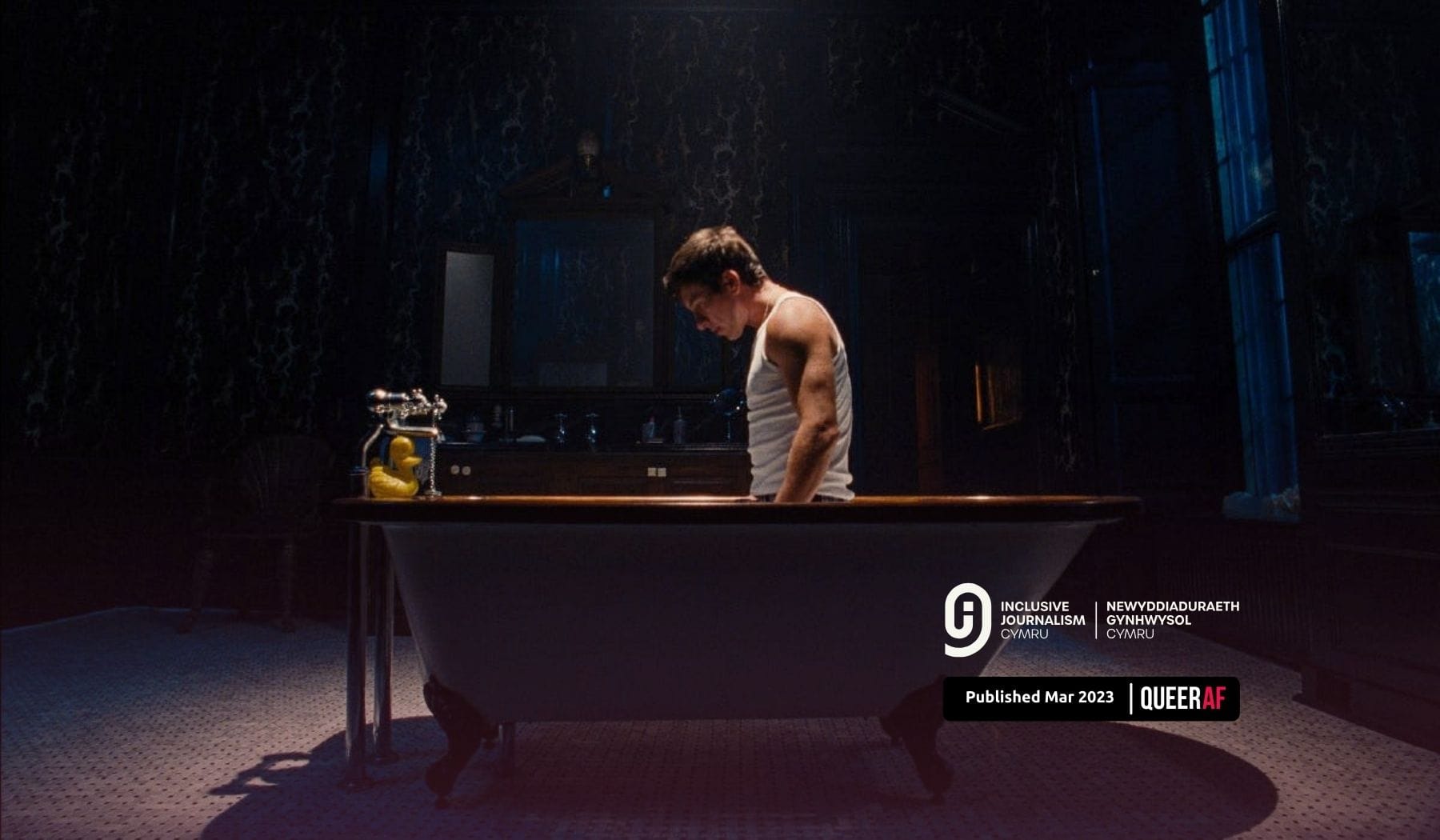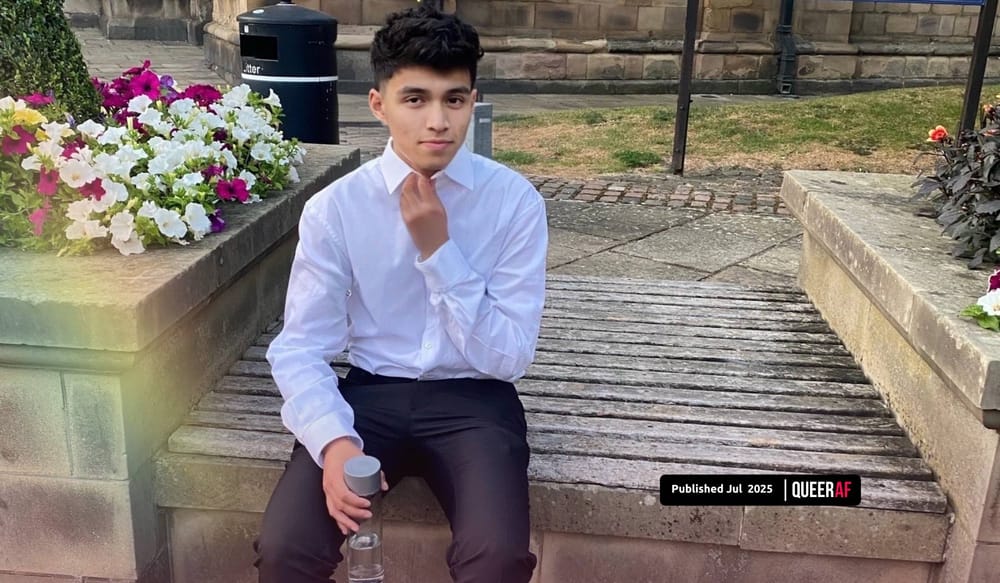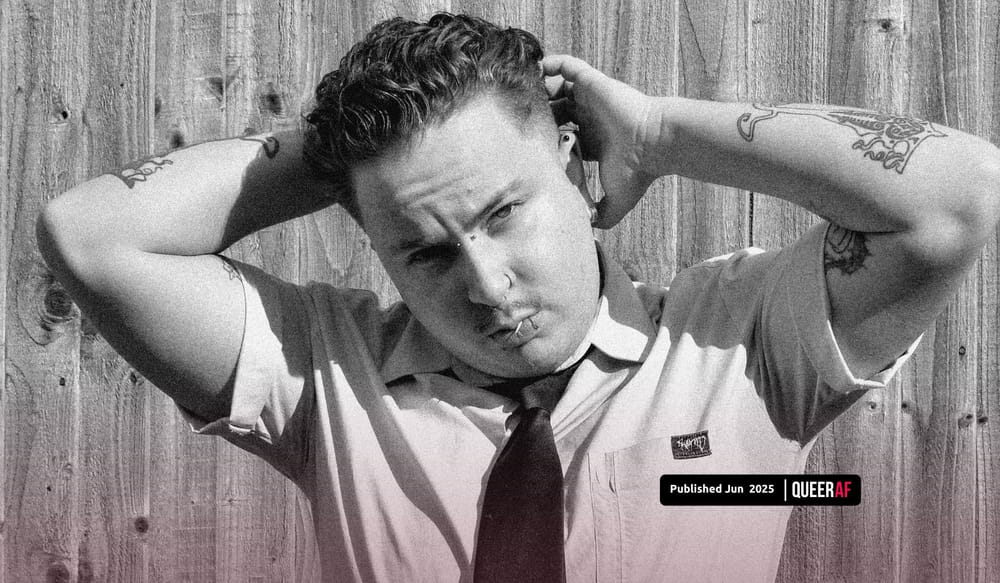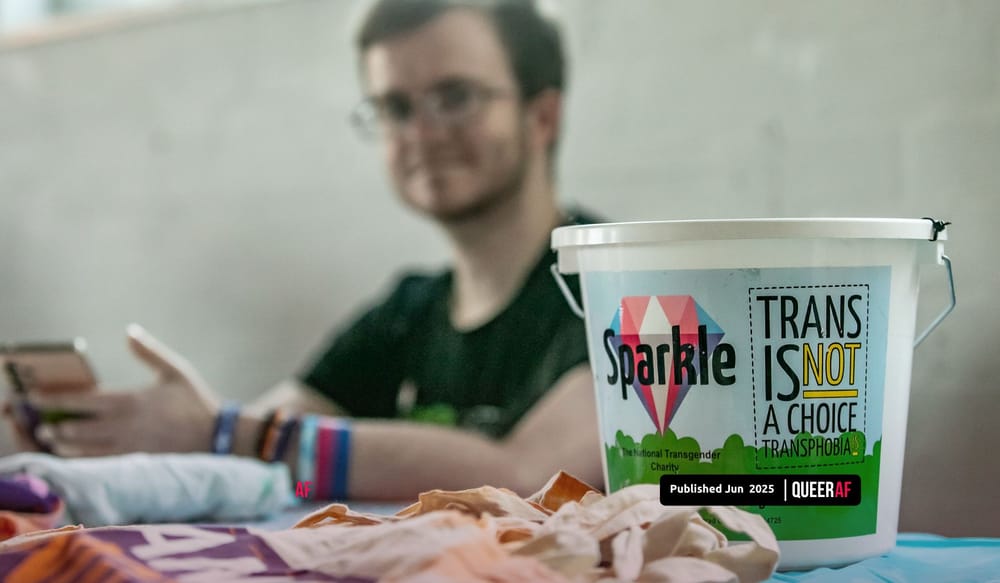
Films and popular culture set norms that impact how people think about queer people, class and where we come from.
But can we really separate the art from the artist in an age where the vastly privileged create the vast majority of our cultural content?
When I first watched Saltburn, it made me uneasy - but it wasn’t immediately clear why. I would later realise how glad I was that it wasn’t my introduction to anything queer.
I quickly went to see what critics said about it, though.
It seems that director Emerald Fenell’s class background is significant in explaining the classist content of the film. At the start of the film, I was excited to see a character I could relate to in Oliver - but his personal story turned out to all be a lie. The Polyester podcast noticed this too, saying that as the film progressed it left the bad aftertaste of witnessing a narrative that was “punching down”.
This film seemed to be an exercise in upper-class vanity, portraying a fantasy of the proles coming for them and their wealth. It felt significant to see Oliver’s character regurgitate the trope that working class people’s struggles are all a lie.
Reading Homocommunist’s look at how ‘Queers Without Money’ are everywhere made me think about queer desire in the film. Activist Amber Hollibaugh’s seminal 2001 essay illustrates the way in which to be poor and queer pushes ‘over the bounds of acceptability’. That is one reason that the depiction of poor queers is rare in popular culture and Hollywood.
In short, Hollibaugh argues that being poor and queer is portrayed as a public shame because of prejudiced views in society.

Hollibaugh advocates that, instead of seeing queer issues as only affecting queer people, our movement should view ourselves as a part of a tapestry of racial, gender, economic and sexual justice. These things should all be an integral part of the agenda for queer politics.
Poor and working-class queers are invisibilised. Without the armour of wealth, queerness is seen as dangerous - just like Oliver in Saltburn.
The queer narrative in Saltburn is one of desire. Erotic desire, as well as the desire for wealth and status. Although queer people, of course, experience the whole range of erotic and romantic experiences, this pathological form of hypersexual desire is a biphobic trope. Oliver, in his deviant sexuality, tries to seduce the whole family of his rich friend. The way he interacts sexually with others is imbued with violence.
The danger of that depiction may not be immediately clear. But it is reminiscent of Silence of the Lambs, which in hindsight was grotesquely transphobic. It’s easy to see the potential for media like that to cause real damage to trans communities, emboldening transphobes who use violence against trans people.

Interestingly, the gay media didn’t get into Saltburn. Usually, films with queer lust and love at their centre are all over the clickbait scene. But this time those writers, like many of us, recognised that a story about a psychopath is not the best ‘queer rep’ to celebrate - despite Fernell saying outright that Saltburn is “absolutely” a queer film.
When confronting the elite, the intersection of class, queerness and regionalism is hard to untangle, and they interact in a unique way. People from elite backgrounds like Fernell have the opportunities and resources to disseminate their reality, create norms, and make things “common sense”. For queers disconnected by geography from queer communities, like myself in Wales, culture such as films are an important part of understanding oneself and the world.
My first experiences that made sense of my own queer identity in a homophobic environment were films, specifically Pedro Almodovar’s depictions of rebellious queer life that I stumbled upon by accident in movies like The Law of Desire and Pepi, Luci, Bom.
I’m just glad my introduction to bisexuality as a teen wasn’t Saltburn. The regurgitation of old tropes and prejudices might have been damaging to someone at the onset of their queer self-actualization.
Queer youth are still at disproportionate risk of homelessness, and as the glitz and glamour of queerness is projected through our screens (mostly in reality TV), it’s too easy for most people to overlook the awkward reality of queer poverty.
We can't control what films are made, but we can analyse what is said by whom and call out things that are destructive to the cause of ridding the world of queerphobia in its most insidious, unsuspecting and shiny forms.
The queer revolution is a never-ending struggle. Dissecting popular culture is an essential aspect of the work.
This article is part of a QueerAF and Inclusive Journalism Cymru partnership dedicated to uplifting Welsh LGBTQIA+ emerging and marginalised journalists.
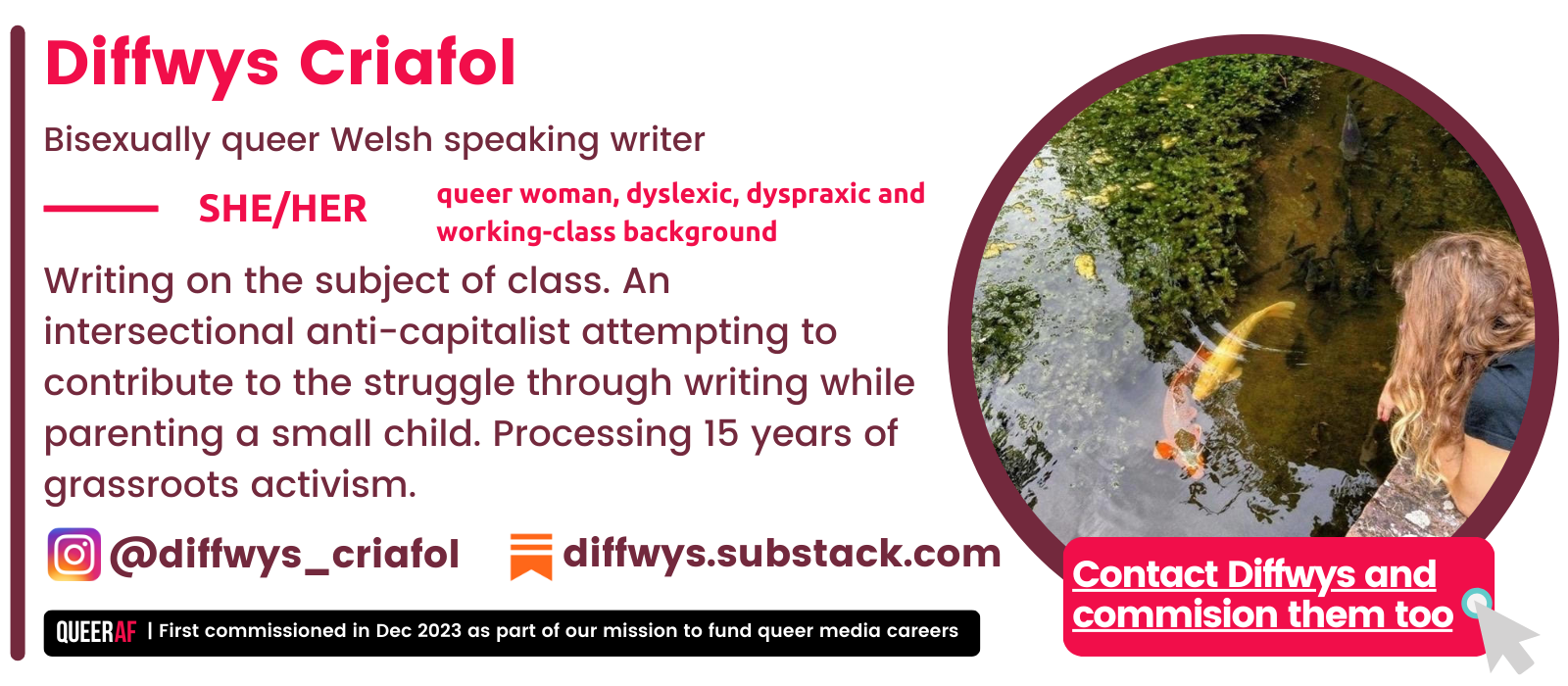
Get the Queer Gaze in your inbox each week with our free weekly newsletter or pitch to write an edition for us now.
QueerAF has partnered with Inclusive Journalism Cymru.
Together we're running a dedicated series of think pieces as part of a unique set of Queer Gaze commissions - our landmark writing scheme.
The articles are being written by three LGBTQIA+ journalists from Inclusive Journalism Cymru's network.
The Queer Gaze is a space in the QueerAF newsletter to commission emerging and underrepresented queer creatives to get published, receive mentorship, and kickstart your career.
Each commission comes with a unique 'retrospective' sub-editing session designed to put you in control of your article.
It's helping Welsh LGBTQIA+ creatives build journalistic craft and strategic communication skills.
You can support our work by becoming a QueerAF member.


